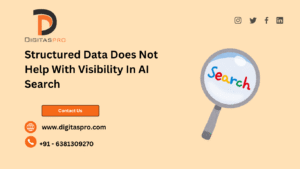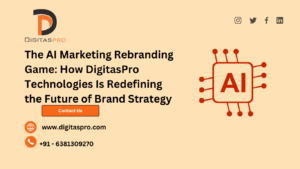Introduction
The SEO landscape is undergoing a seismic shift. With the rise of sophisticated AI search tools like ChatGPT and Google Gemini, traditional SEO strategies—focused on keyword ranking, backlinks, and SERP position—can no longer guarantee visibility. Instead, content must be optimized for AI-driven discovery. This transformation introduces novel strategies like Artificial Intelligence Search Engine Optimization (AI SEO), Answer Engine Optimization (AEO), and Generative Engine Optimization (GEO) to help brands stay visible in this AI-centric era.
1. The Rise of AI-Powered Search
ChatGPT and Gemini: Redefining How People Search
AI chatbots have become mainstream discovery tools:
- Users get instant conversational answers from models like ChatGPT, Gemini, Claude, and Perplexity, reducing the need for search engine clicks .
- ChatGPT alone is estimated to handle hundreds of millions of queries daily—roughly 3.5% of Google’s volume .
- These platforms employ Retrieval-Augmented Generation (ChatGPT), Search and Reason (Gemini), and similar live indexing mechanisms instead of traditional SERP listings .
Zero-Click and AI Overviews Reshaping Engagement
- AI-generated summaries now sit atop search results, displacing click-through traffic and undermining traditional SEO .
- These changes have accelerated the decline in organic traffic, prompting businesses to rethink their visibility strategies.
2. Why Traditional SEO Alone Isn’t Enough
Shift in How AI Prioritizes Content
Compared to SEO, AI prefers content with:
- Clear structure (headings, bullets, schema markup)
- Authoritative and recent content
- Focused answers to conversational queries, not keyword stuffing.
Human Touch Still Matters
While AI prioritizes clarity and structure, human qualities like empathy and storytelling are still vital. AI-generated answers may provide information, but they lack emotional resonance. Brands that can connect emotionally and offer unique insights win in the AI era Angie Nikoleychuk.
3. New Optimization Approaches for an AI-Driven Future
a. Answer Engine Optimization (AEO)
AEO helps your brand be featured directly in AI responses:
- Uses Q&A formats, natural language, and structured data (schema.org, headings) to align with AI parsing.
- Focuses on answer snippets, unlike traditional SEO’s keyword ranking goals .
- Helps brands adapt to voice search and zero-click environments effectively .
b. Generative Engine Optimization (GEO)
GEO ensures content is cited or used as a source in AI-generated outputs:
- Coined in 2023 by Gao et al., GEO includes techniques like specialized metadata (e.g.,
llms.txt), structured cues, and content depth Wikipedia. - Focuses on building topical authority and rich, sourceable content that AI models prefer .
c. AI SEO (Holistic Strategy)
An integrative approach leveraging traditional SEO, AEO, and GEO:
- Combines technical SEO, structured conversational content, and AI-friendly signals .
- Ensures visibility across both traditional search engines and AI-driven answer systems.
d. Answer Engine Optimization—Trend Surge
- AEO has become a fast-growing trend: solving for clusters of queries instead of single keywords.
- Startups and tools are emerging to help brands gain visibility in AI responses .
4. Practical Guide: How Brands Adapt & Win
Optimize Page Structure
- Use clear headings, bullet lists, short paragraphs, and schema markup.
- Make content easily understandable for both humans and AI engines .
Speak the AI Language
- Craft content in conversational Q&A tone.
- Include natural language question headings like “How do I…?” or “What is…?” .
Build Trust and Authority
- Use accurate, up-to-date, and credible sources.
- Prioritize EEAT principles (Experience, Expertise, Authoritativeness, Trustworthiness)—AI rewards trustworthy content .
Speed and Technical Accessibility
- Optimize page load times and mobile usability for AI crawlers, which have limited time to process each page .
Diversify Content & Platforms
- Spread your presence across formats—blogs, video, newsletters, social posts.
- This amplifies your reach beyond AI-generated overviews.
Audit & Measure New KPIs
- Track AI citations, answer snippet presence, and brand mentions in AI-generated content—not just clicks or rankings
Real-World Examples
- Mailchimp adjusted its site to be more AI-friendly, focusing on technical optimizations and structure to remain visible to AI crawlers .
- Back Market optimized content with conversational tone and updated product pages to catch AI-driven shopping queries .
5. Frequently Asked Questions (FAQs)
Q1: What’s the difference between traditional SEO, AEO, and GEO?
A:
- Traditional SEO focuses on ranking for keywords via backlinks and search engine indexing.
- AEO optimizes content to be directly answered or quoted in AI search responses through Q&A structures and schema.
- GEO aims to ensure your content is cited by generative AI systems by providing rich, structured, and authoritative content Wikipedia+2Wikipedia+2.
Q2: Are AI search tools replacing Google?
A: Not entirely. Google still dominates (handling far more queries annually) The Wall Street Journal. But AI tools are significantly changing user behavior and traffic patterns.
Q3: How do I get cited by ChatGPT or Gemini?
A: Provide clear, accurate, and well-structured content that directly answers common user questions and includes authoritative sourcing to increase citation likelihood.
Q4: Is content still clicked or read?
A: Yes—but AI models increasingly provide zero-click answers, so traditional metrics like CTRs and rankings are becoming less reliable indicators of visibility.
Q5: Should brands abandon SEO altogether?
A: No. A hybrid strategy that combines traditional SEO, AEO, and GEO is the most resilient approach in today’s AI-centric landscape .
Conclusion
The emergence of AI-powered search tools like ChatGPT and Google Gemini has forever altered the SEO landscape. Visibility is no longer about ranking on page 1—it’s about being the answer. The new game is played with AI SEO, AEO, and GEO. Brands that adapt with structured, human-centric, authoritative content across formats and platforms will thrive. It’s time for organizations like DigitasPro Technologies to evolve SEO strategies from keyword chasing to answer-engine dominance.


